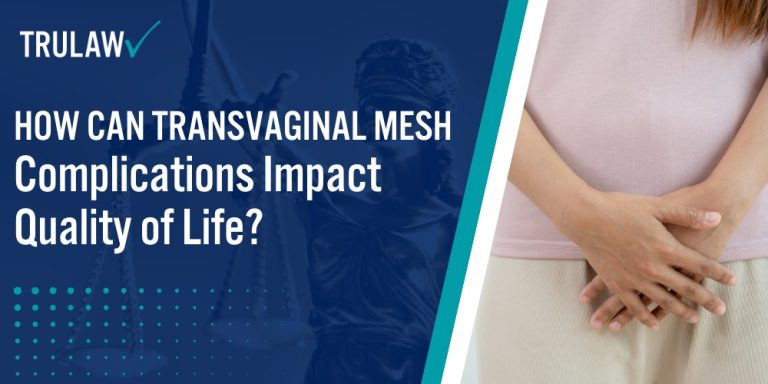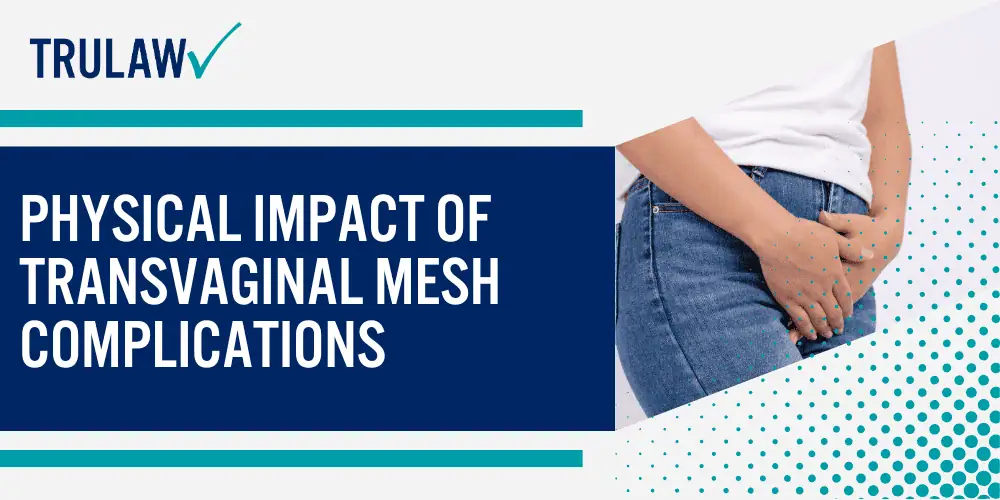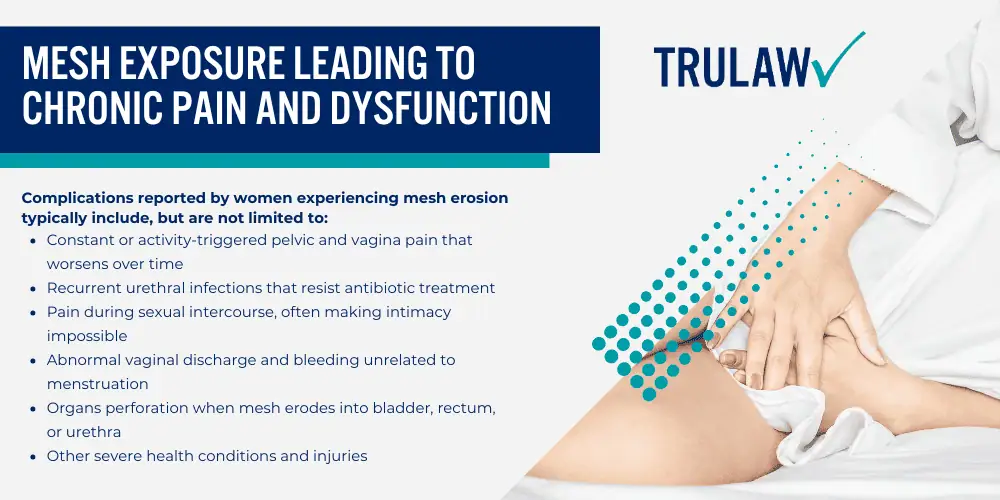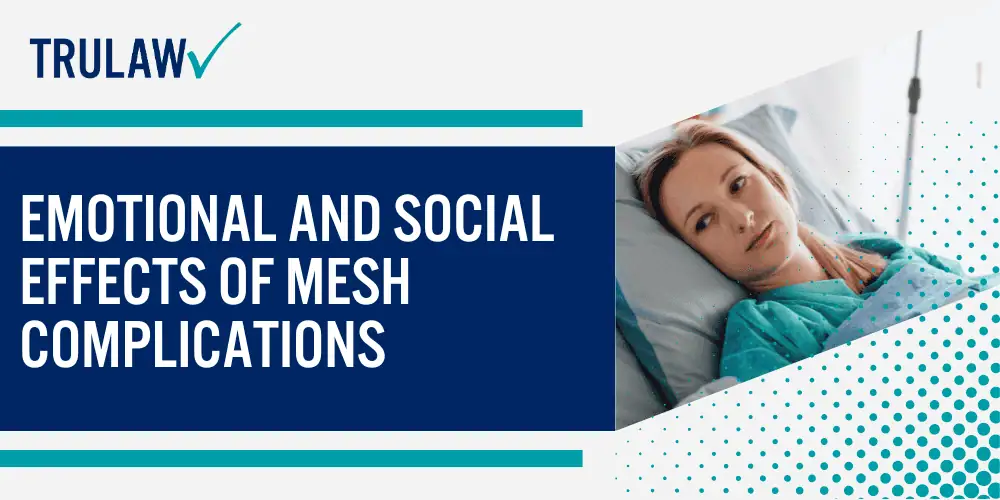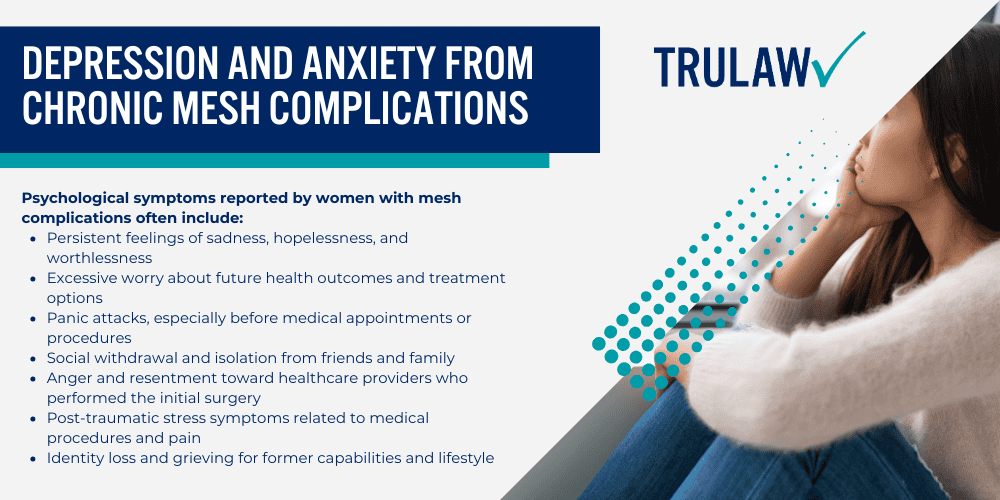Transvaginal mesh complications represent some of the most serious adverse effects experienced by women who have undergone surgical procedures to treat pelvic floor disorders.
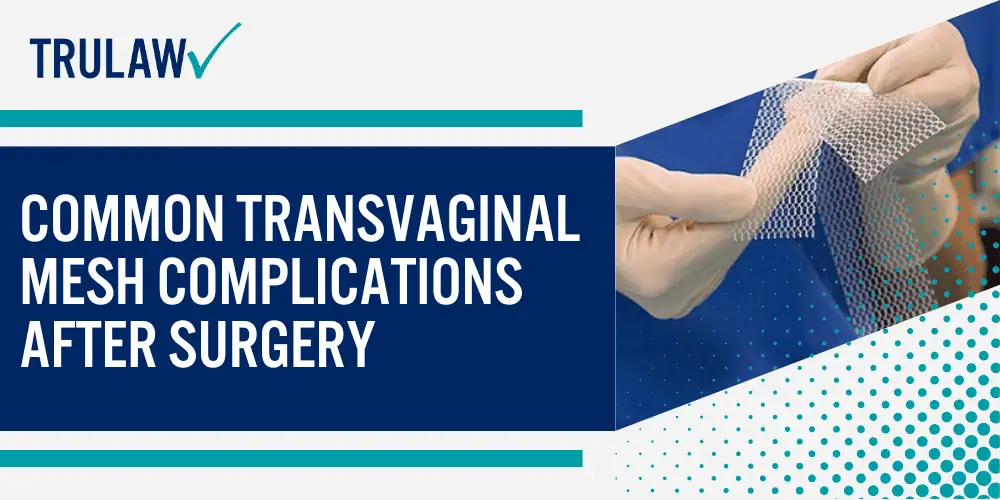
These complications have been extensively documented by the FDA and medical researchers, prompting regulatory actions including reclassification of transvaginal mesh as a high-risk device and eventually banning its use for pelvic organ prolapse repairs due to safety concerns that outweigh potential benefits according to studies from the Mayo Clinic and adverse event data collected by regulatory agencies.
Recognizing Mesh Erosion and Its Physical Symptoms
Mesh erosion, also referred to as exposure, extrusion, or protrusion, occurs when the synthetic material wears through vaginal tissue and becomes exposed.
This process develops gradually as the body’s response to the foreign material causes the mesh to migrate through tissue layers, creating a pathway for infection and persistent tissue damage.
The Food and Drug Administration has identified mesh erosion as the most commonly reported complication of transvaginal POP repair with surgical mesh.
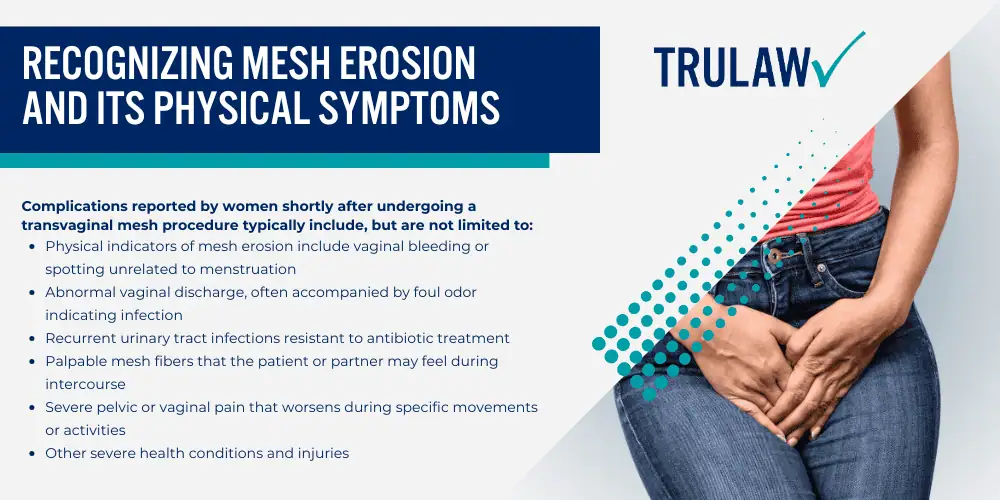
Complications reported by women shortly after undergoing a transvaginal mesh procedure typically include, but are not limited to:
- Physical indicators of mesh erosion include vaginal bleeding or spotting unrelated to menstruation
- Abnormal vaginal discharge, often accompanied by foul odor indicating infection
- Recurrent urinary tract infections resistant to antibiotic treatment
- Palpable mesh fibers that the patient or partner may feel during intercourse
- Severe pelvic or vaginal pain that worsens during specific movements or activities
- Other severe health conditions and injuries
Pain and Discomfort: Ongoing Mesh-Related Complications
Women experiencing transvaginal mesh complications often report debilitating chronic pain as their most significant symptom, dramatically reducing quality of life and necessitating additional interventions.
According to the American College of Obstetricians and Gynecologists, Pelvic pain (including dyspareunia), possibly related to nonexposed mesh may not respond to mesh removal and should prompt referral to a clinician with appropriate training and experience.
This acknowledgment reflects the challenging nature of treating mesh-related pain syndromes.
The management of chronic pain after mesh implantation presents substantial challenges for medical professionals, often requiring multidisciplinary approaches including physical therapy, pain management specialists, and potential surgery to remove the offending material.
Research published in the International Urogynecology Journal demonstrates that early diagnosis of mesh complications is crucial for successful treatment outcomes, with complications identified within the first year having better resolution rates than those discovered later.
Even with expert intervention, patients may continue to experience pain and related symptoms for years after the initial procedure, highlighting the importance of proper patient selection and informed consent before utilizing mesh-based surgical approaches.
